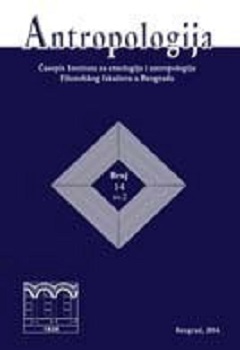Представе о „нормалном“ животу у Србији после 2000. Упоредни антрополошки преглед
Тhe Representations of ‘Normal’ life in Serbia after 2000. Comparative Anthropological Review
Author(s): Marija BrujićSubject(s): Anthropology, Economic development, EU-Accession / EU-DEvelopment, Globalization, Politics and Identity, Identity of Collectives
Published by: Институт за етнологију и антропологију
Keywords: anthropological approach to normality and abnormality; Serbia; SFR Yugoslavia; Bosnia and Herzegovina; EU
Summary/Abstract: In order to focus on the issue of everyday life in Serbia, I compare two books on the anthropology of future and time based on ethnographic fieldworks on “normal lives” after 2000 among people in Serbia (Žikić 2013) and Bosnia and Herzegovina (Jansen 2015). The main aims of this paper are to draw attention to these ethnographic studies and to induce repeated studies of “normality” in post-Yugoslav societies, especially in the context of the on-going Europeanization. The similarities in narratives of authors’ interlocutors and consequently in their research results reveal similar responses to current living conditions in these two states. On the one hand, informants see the current everyday life as “abnormal” in comparison to the high quality of life they consider to have lead in the Socialist Federal Republic of Yugoslavia, i.e. in the state that had functioned. On the other hand, Jansen’s and especially Žikić’s interlocutors have high hopes of the EU-integrations and the future lives within the EU in which they expect normal lives to be re-established. However, both authors notice that their interlocutors do not see themselves as agents of civic and political activism and are embedded in social practices of “waiting”, yearning for hope or expecting normality instead of their active engagement for a change.
Journal: Antropologija
- Issue Year: 18/2018
- Issue No: 2
- Page Range: 103-122
- Page Count: 20
- Language: Serbian

